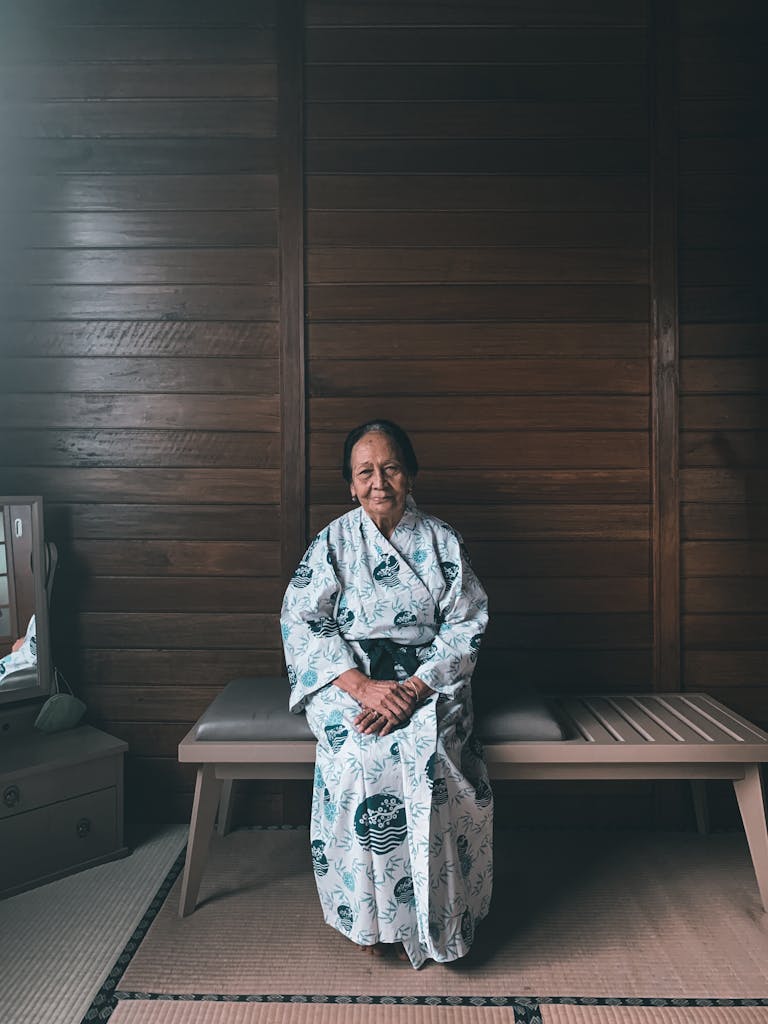FREE SHIPPING OVER $50
Hara Hachi Bu: The Unspoken Rule Behind the World’s Longest-Living People
When it comes to living a long, healthy life, many of us obsess over superfoods, supplements, and the latest exercise fads. But what if the secret to longevity was simpler than we imagined? Enter Hara Hachi Bu, a centuries-old Japanese practice that just might be the key to why the people of Okinawa consistently rank among the longest-living populations in the world.
If you’ve never heard of Hara Hachi Bu, don’t worry—you’re not alone. This simple rule has stayed under the radar in mainstream discussions about health, but its principles are not only easy to follow but also life-changing. Let’s explore what Hara Hachi Bu is, why it works, and how you can incorporate it into your daily life.
What Is Hara Hachi Bu?

Hara Hachi Bu is a Confucian-inspired adage meaning “eat until you are 80% full.” Practiced for generations in Okinawa, this guideline is less about what you eat and more about how much you eat. It’s the antithesis of the “clean your plate” mindset that many of us grew up with.
Instead of eating until you feel completely stuffed, Hara Hachi Bu encourages you to stop eating when you’re just satisfied. This helps prevent overeating and gives your brain time to catch up with your stomach’s fullness signals.
Why Does Hara Hachi Bu Work?
1. Prevents Overeating
Science shows that it takes about 20 minutes for the brain to register fullness. If you’re eating until you feel full, chances are you’ve already consumed more calories than your body actually needs. Hara Hachi Bu acts as a natural buffer, allowing your body to regulate intake before it’s too late.
2. Supports Digestive Health
Overeating can burden your digestive system, leading to bloating, acid reflux, and other unpleasant symptoms. By eating moderately, your body has an easier time processing food efficiently.
3. Promotes Caloric Restriction Without Starvation
Studies have linked moderate caloric restriction with increased lifespan. Hara Hachi Bu achieves this naturally, as eating less means you’re consuming fewer calories—without feeling deprived.
4. Reduces Chronic Disease Risk
Okinawans have some of the lowest rates of heart disease, diabetes, and cancer in the world. By eating less and maintaining a balanced diet, they reduce the likelihood of developing these chronic illnesses.
5. Encourages Mindful Eating
Mindful eating, where you savor each bite and pay attention to your body’s hunger cues, is central to Hara Hachi Bu. This practice not only prevents overeating but also helps you enjoy your food more.
How Hara Hachi Bu Contributes to Longevity
Okinawa is often referred to as a “Blue Zone,” a region where people live significantly longer than average. Their diet and lifestyle play a major role, and Hara Hachi Bu is a cornerstone of their eating habits.
The average Okinawan consumes fewer calories than most Western diets but still enjoys nutrient-dense meals rich in vegetables, whole grains, and lean proteins. Coupled with Hara Hachi Bu, this approach to eating keeps their metabolism humming and their bodies functioning optimally for decades.
How to Practice Hara Hachi Bu
Adopting Hara Hachi Bu doesn’t require a complete lifestyle overhaul. Here’s how you can start practicing it today:
1. Use Smaller Plates
Smaller plates make portion control easier and help trick your brain into thinking you’re eating more.
2. Chew Slowly
Take your time with each bite. Not only does this improve digestion, but it also gives your brain time to catch up with your stomach.
3. Stop Before You’re Full
The key to Hara Hachi Bu is to stop eating when you feel about 80% full. It may feel strange at first, but over time, your body will adjust.
4. Practice Portion Awareness
Learn to recognize what a reasonable portion looks like. Use measuring cups or a food scale if needed, especially when starting out.
5. Focus on Nutrient Density
Fill your plate with high-quality, nutrient-rich foods like vegetables, legumes, lean proteins, and whole grains. This way, even smaller portions can keep you satisfied.
Common Misconceptions About Hara Hachi Bu
1. It’s Not About Starvation
Some people mistake Hara Hachi Bu for restrictive dieting. However, the goal isn’t to deprive yourself but to eat just enough for your body’s needs.
2. It’s Not a “One-Size-Fits-All” Approach
Hara Hachi Bu is adaptable. Whether you’re a vegan, a keto enthusiast, or somewhere in between, this practice can complement your dietary preferences.
3. It’s Not Just for Longevity
While its connection to a longer life is compelling, Hara Hachi Bu also enhances your overall well-being by improving digestion, energy levels, and even mental clarity.
The Science Behind Eating Less
Several studies back up the benefits of eating moderately:
- Caloric Restriction and Aging: Research published in Nature Communications highlights how caloric restriction can delay aging and improve overall health.
- Weight Management: A study from The American Journal of Clinical Nutrition found that eating smaller portions significantly reduces the risk of obesity.
- Brain Health: Moderate eating has been linked to improved cognitive function, as it prevents the brain fog often associated with overindulgence.
Why You Should Try Hara Hachi Bu
The simplicity of Hara Hachi Bu is what makes it so appealing. It doesn’t require counting calories, following a restrictive diet, or investing in expensive meal plans. Instead, it’s about listening to your body and eating in a way that nourishes it without overloading it.







